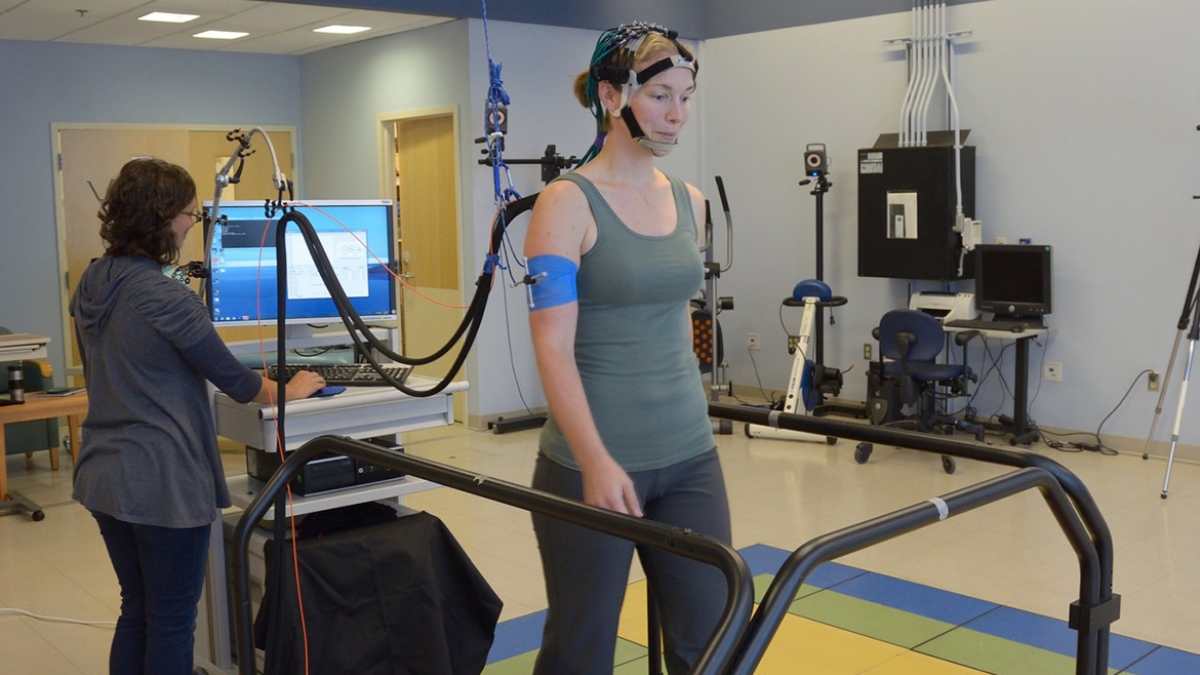Research Plus Me connects volunteers with research studies

Photo courtesy National Institutes of Health
From creating new cancer drugs to developing more effective teaching methods, research plays an important role in improving our lives. But researchers can’t do this work alone; many studies depend on members of the community volunteering to participate. Finding those volunteers, however, can be difficult and time-consuming.
Research Plus Me is a new online platform at Arizona State University created to address this challenge. It was designed and developed with support from the ASU and Common Spirit/Dignity Health collaboration. Researchers can post studies that need participants, making it easy for ASU students, alumni, staff and the public to connect with studies on topics they care about. Some of the studies also offer financial compensation to participants.
“ASU conducts about 3,000 studies with human participants a year. The way we recruit for studies is disadvantageous to researchers and participants,” says Amber Hedquist, program manager for Research Plus Me. “Interested participants have no central way to find and stay updated on study opportunities. Similarly, researchers struggle to meet their enrollment, timeline and diversity goals. Research Plus Me is designed to overcome these difficulties.”
Research Plus Me is inspired by the ASU Charter, which prioritizes research and discovery of public value. Determining public value requires continued collaboration between researchers and the communities they serve. ASU is measured not by whom it excludes, but by whom it includes and how they succeed. Including study participants with diverse life experiences and backgrounds — such as age, race/ethnicity, gender and education status — produces research findings that transform our society.
Diversity is important because research findings need to be generalized across a larger population. For example, research on heart attacks only included men for a long time. As a result, guidance about the signs of a heart attack only included symptoms common in men. Women experiencing heart attacks often did not seek help — or were sent home from hospitals — because their symptoms didn’t match expectations.
Even studies that focus on a narrow demographic group present challenges for recruitment.
Gabriel Shaibi is a professor in the Edson College of Nursing and Health Innovation. He studies obesity-related health in high-risk and vulnerable populations.
“We always think about recruitment as the most challenging aspect of enrolling human participants into our studies, particularly clinical trials,” he says.
For example, in one of his past trials, Shaibi needed to recruit children with obesity as well as pre-diabetes, all from Latino populations. His team had to reach out to over 1,000 families to enroll the final sample of 120 participants.
“You’re spending hours and hours of time, energy and effort to even have the opportunity to talk to somebody who might be interested,” he explains. And many of those interested people won’t meet the criteria needed for the study.
The design and development of Research Plus Me was informed by ASU Clinical Professor Aparna Rao and Professor Shelley Gray, who created a participant recruitment tool for the College of Health Solutions. With their guidance and expertise, ASU Knowledge Enterprise scaled their efforts to serve researchers across the university.
Research Plus Me offers tremendous benefits to participants and researchers alike.
“If we can increase access to trials and state-of-the-art interventions for underrepresented populations, that provides an opportunity to address and reduce health disparities,” Shaibi says. “From a researcher’s perspective, the resources that we would otherwise spend on recruiting participants could go further to implement the trials and potentially disseminate the results back to the community.”
Who can join Research Plus Me?
Anyone can sign up for an account. You do not need to be affiliated with ASU to join.
After you enter some demographic data and your areas of interest, you will receive notifications about studies that may be a good fit for you. You can also peruse all of the studies on the website. Some studies require you to participate in person, but others can be completed online.
Each researcher is responsible for determining whether a specific volunteer meets the study’s requirements and for obtaining the necessary consent.
Does it protect my safety and privacy?
Every study posted on Research Plus Me must be approved by an Institutional Review Board (IRB) to ensure that it complies with all applicable regulations, meets ethical standards and protects participants.
Each study will provide easy-to-understand information about what is required from you, how the data collected will be used and protected, and whom to contact with any questions. You can stop participating in a study at any time without penalty.
The information you enter into the Research Plus Me portal is stored in a secure database and will never be sold, lent or otherwise given to any vendor at any time.
Who can post a study on Research Plus Me?
Any ASU researcher with an IRB-approved study can post on Research Plus Me at no cost. This includes student researchers, if they are working with an ASU-based principal investigator.
How can educators use the site?
Research studies can be educational for participants as well as researchers. For that reason, Research Plus Me includes a section for teachers with suggestions for using participation and the platform itself as educational opportunities. The team is currently developing a curriculum to help teachers better leverage this resource in their classrooms.
Explore educational opportunities.
Research Plus Me was created by ASU’s Knowledge Enterprise, with significant contributions from community members and ASU researchers. For more information, contact info@researchplus.me.

